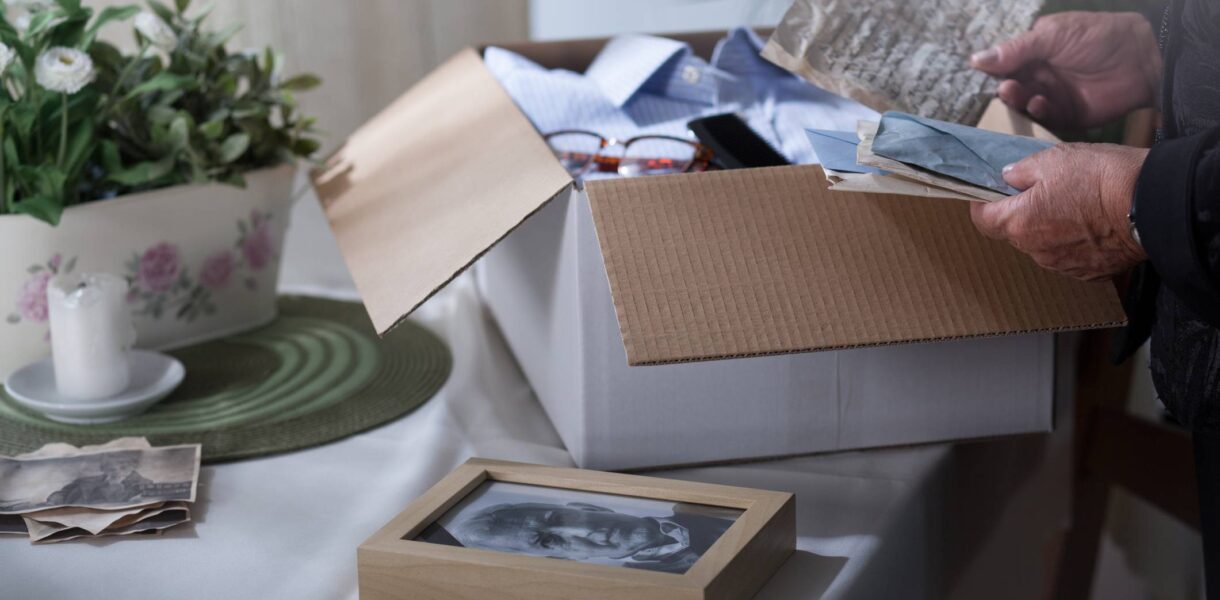
Helping A Loved One Transition to Memory Care: Making Moving Day a Positive Experience
In our first Transitions blog, we discussed how to help prepare for your loved one’s move to memory care. In this month’s blog, we have suggestions for how to make the big day – moving day – as stress-free and positive as possible.
You’ve planned and prepared, and now it’s finally here – the day you move your loved one to their new home in a memory care community. This can be the most anxiety-inducing and emotionally fraught part of the process for you, simply because there may be no telling how your loved one will react.
First of all, take a deep breath – you’re not alone in this. The memory care community you’ve chosen has extensive experience in helping move residents in, and the staff and leadership will be a supportive presence you can lean on to help ease the transition. Here are a few suggestions for how you can help make the move a little easier and keep you, your loved one and other family members calm and feeling supported.
Directly before moving day
- Take some time off. Moving day can be a long, exhausting process. Make it a little easier for yourself by taking the time off from work so you can be present for your loved one without having to worry about deadlines or client meetings. You may want to stay at the community for the entire day to help your loved one acclimate, or you may wish to have several short visits throughout the day.
- Arrange for some support. During the move, it’s best to have at least two people present so that someone can attend to your loved one at all times. If you have a family member who can join you for the day, that’s a great option – plus it never hurts to have moral support. Otherwise, discuss the situation with the memory care community beforehand, and they’ll be sure to have supportive staff on hand to assist.
- Don’t announce the move in advance. This can cause anxiety and confusion for your loved one, so it’s best to not even bring it up.
The big day
- Don’t make a big deal. Your loved one will mirror your emotions, so if you get anxious or upset, it’s more than likely they will follow suit. Try and follow your daily routine as much as possible until it’s time to get in the car. If your loved one gets defensive about moving, don’t try to argue – simply move forward with a positive attitude.
- Make sure there are favorite items in your loved one’s new space. If you’ve been able to decorate their room ahead of time, great! If not, be sure to have a box of familiar and cherished items to place in their new room to help make things more welcoming. Photos, little trinkets and favorite blankets and pillows can help make the setting seem more like home.
- Use the power of food. Work with the staff to arrange some familiar, favorite meals for your loved one during their first few days at the community. It’s also good to spend at least one meal with your loved one during that first day to help create a sense of normalcy.
- Make your exit with grace. Saying goodbye is difficult on the best of days, and it will assuredly be more difficult on moving day. You know your loved one best, so you can decide whether it’s better to follow your regular departure routine, slip out discreetly or arrange to leave for a bit and then come back to help your loved one feel secure. Discuss your plan with the staff beforehand so they can provide necessary support.
- Do something nice for yourself. Moving day can be exhausting physically, mentally and emotionally. You may experience a wide variety of emotions after your loved one has moved in. Be kind to yourself and take some time to care for you. Go out for dinner, talk to a close friend, do a yoga class or anything else that will soothe you.
The staff at Avalon Memory Care is well-versed in helping our residents and families tackle moving day, and we’re here to help in whatever way we can. Our professional, caring staff is available to help before, during and after the move to help make this transition as easy as possible for you and your loved one. For more information about the memory care services offered at our locations, please contact us at (972)713-1383.
See More Articles
-
Understanding Parkinson’s Disease and Dementia
Parkinson’s disease is an incurable neurological disorder, with progressively worsening complications. Perhaps the most well-known symptom of Parkinson’s is a hand tremor, but it can also cause speech changes, muscle rigidity, and impaired posture. Eventually, as the disease progresses, more than half of all individuals with Parkinson’s will require dementia care. This particular type of
-
The Long Goodbye: Understanding Anticipatory Grief and Dementia
When you have a family member who is suffering from dementia, it’s not unusual to find yourself experiencing sharp and sudden emotions. The gradual loss of a loved one is, in many ways, comparable to experiencing the death of someone close to you. With progressive dementia, this sense of loss is accompanied by another emotion
-
Hope For the Future: Emerging Alzheimer’s Research
According to the latest statistics, as many as 5.5 million Americans are living with Alzheimer’s disease, and its prevalence is only expected to rise in the next few decades. At the same time, however, research into treatments for the condition is accelerating. With every passing year, we move a little further down the road toward
Testimonials
Downloadable Resources
We Are Avalon
Discover the heart of our community; download ‘We Are Avalon’ to get to know our dedicated team and our commitment to providing a warm, family-like environment.
Transitional Care Guide
If you’re considering a transition, we’re here to help; download our Transitional Care Guide for compassionate guidance through each step of the process.
Schedule a Tour
Visit one of our 30+ campuses and experience our unique approach to memory care.












